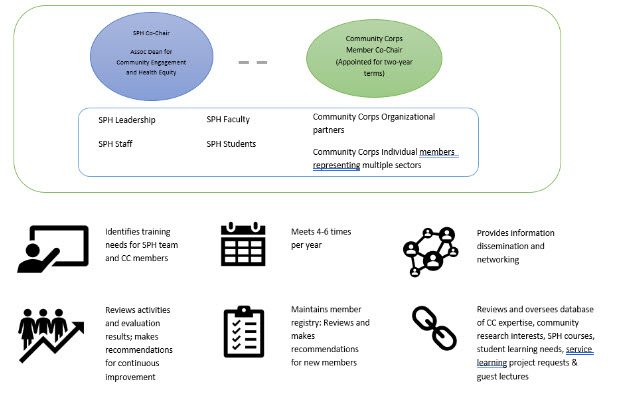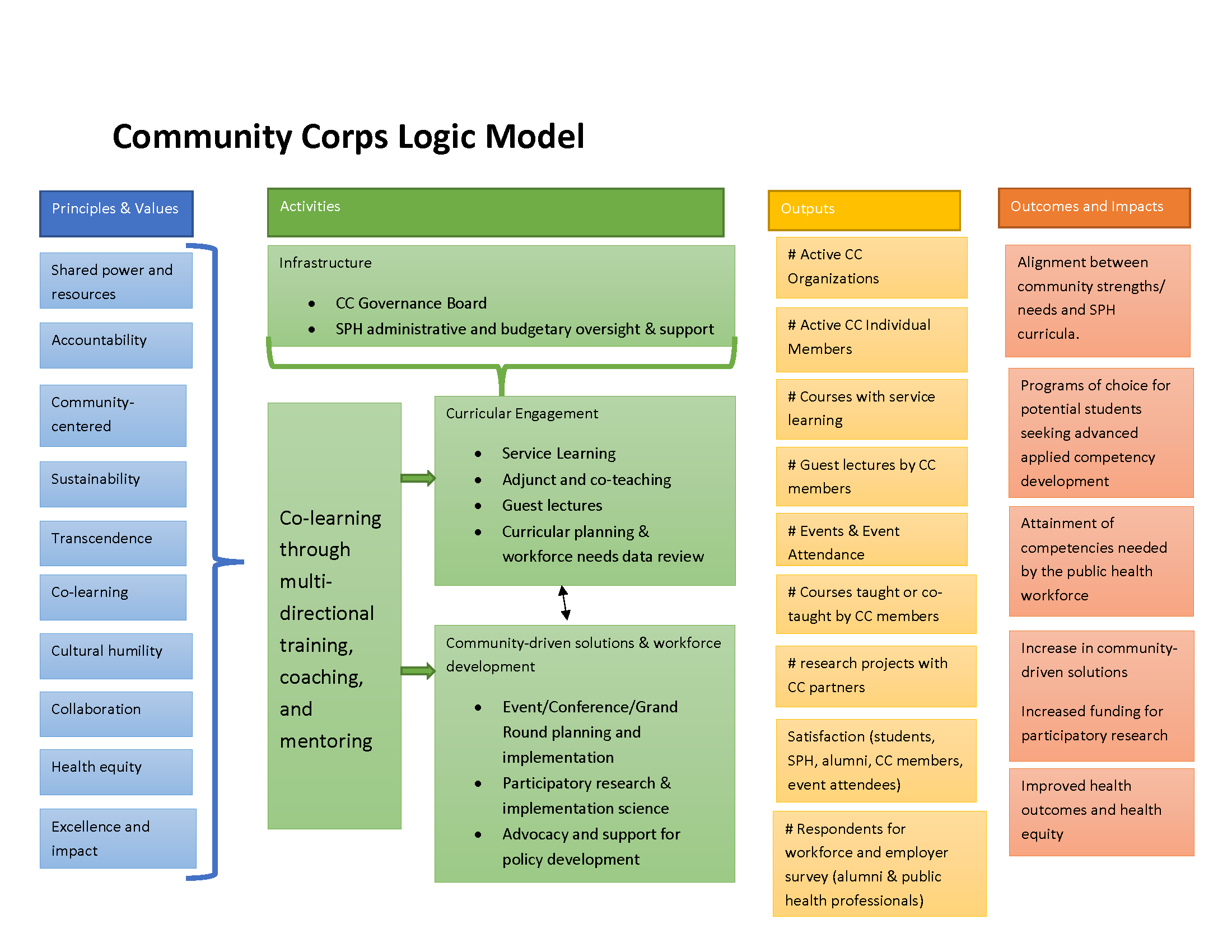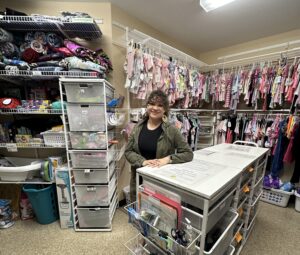Centering the Community
 |
“Learning that extends outside the classroom made my education more impactful and meaningful.” – MPH Public Health Leadership Student |
Learn more about Community Corps
Courageous Integrity. Be Curious. We Care. Better Together. Show Your Fire.
Everyday, our College of Public Health students, faculty, and staff live these values as we pursue the HSC mission to create solutions for a healthier community. While many of our team members are deeply invested in improving the health of our surrounding North Central Texas communities, others are pursuing solutions across the globe.
Membership
Membership in the Community Corps includes two levels, individual and organizational.
Organizational memberships are defined by Memorandums of Understanding that outline the shared vision and resources between the UNTHSC School of Public Health and an external organization.
Individual memberships:
Individual memberships are established through an application and review process led by a governing committee made up of SPH and community partners. Membership is for a period of two years, renewable upon review of the governing committee.
Follow this link to apply
Community Corps Governance Committee
| Name | Title & Organization | Governance Committee Role |
| Chara Stewart Abrams, MPH | System Director, Community Health and Health Equity, CHRISTUS Health | Co-Chair |
| Emily Spence, PhD, MSW, SPH, CHWI | Associate Dean for Community Engagement and Health Equity, School of Public Health, UNTHSC | Co-Chair |
| Heather Brizendine, MPH, ACPS, SPH | Senior Director of Prevention Services, Boys and Girls Clubs of Greater Tarrant County | Member |
| Ashenafi Cherkos, PhD, MPH | Assistant Professor, School of Public Health | Member |
| Leilani Dodgen, PhD, MPH | Research Scientist, Baylor Scott & White Health and Wellness Center | Member |
| Becky Earlie-Royer, PhD, MPH, CHES | Deputy Regional Director, Texas Department of State Health Services Public Health Region 2/3 | Member |
| Linda Fulmer, MEd | Executive Director, Healthy Tarrant County Collaboration | Member |
| Jessica Guerra Martinez, MPH, SPH | Program Manager, Community Development, CHRISTUS Health | Member |
| Annabel Luna-Smith, MS, CHW, CHWI | Community Liaison, Project Manager; Office of the Provost, UNTHSC | Member |
| Uyen-sa Nguyen, PhD | Associate Professor, School of Public Health, UNTHSC | Member |
| Charlotte Noble, PhD | Assistant Dean for Curriculum and Academic Services, Assistant Professor | Member |
| Catherine Sembajwe-Reeves, EdD, MA | Assistant Professor, Master of Health Administration Program Director, School of Public Health | Member |
| Jacklinn Sotello, MPH | Executive Director of Community Health, YMCA of Metropolitan Fort Worth | Member |
| Yvette Wingate, EdD | Division Manager, Community Health Equity and Inclusion, Tarrant County Public Health | Member |

Community Impact
Community Corps Logic Model and Principles

Community Corps education examples
“It’s been probably one of my favorite things about our program, is that we have the opportunity to learn from people that have that experience, and it really does boil down to what we actually need. I think it will really benefit us knowing the meat in the bone of what we actually need to know.” – MHA Student
Biostatistics and Epidemiology
BIOS 6320: Biostatistical Research and Consulting
“A good opportunity to work with real life data that community partners gathered themselves. We were able to gain experience and help partners pinpoint things they could consider or use in the future when gathering other data.” – MPH Biostats Student
Students complete a research, evaluation or consulting project with a professor or community partner where they assess, analyze, write, and present findings to meet the needs of their “client”.
Health Behavior and Health Systems
BACH 5350 Community Health Program Evaluation
“I enjoyed being able to see the realities of the concepts we learn.” – MPH PHL Student
Students utilized evaluation training received in the first half of the semester to conduct an evaluation for a community partner in an area of need indicated by the partner. Evaluations consisted of data collection and analysis as well as producing materials and recommendations for the partner to use moving forward.
MACH 5335 Human Sexuality and Reproductive Health
“We were able to take something that was currently going on that would benefit a community partner, but also make it fit the needs of the students about a specific content area.” – Dr. Griner, Course Instructor
Dallas Salvation Army was looking to expand their programming and they wanted to know what that what the people in their community needed, because they were aiming to map out everything across the county. Proposal was introduced to class the students provided support by conducting needs assessment in service community, which specifically consisted of analyzing reproductive health policies that may be impacting care as a class and individually talking with community stakeholders that were focusing on reproductive health.




Social media